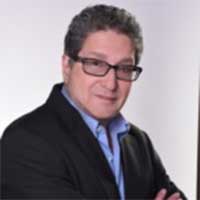Fractures of Castroism

By: Pedro Corzo - 16/06/2025
Guest columnist.Share:
Everything indicates that the ironclad social control established in Cuba by brothers Fidel and Raúl Castro, inherited by the inept Miguel Díaz-Canel, is crumbling. Although it's fair to say that this is not solely a consequence of the opposition's courage, but rather the chronic inefficiency of a system that has accumulated endless failures and errors over 66 years.
In a telephone conversation with Guillermo Fariñas –Santa Clara, Cuba, 2010 Sakharov Prize winner and leader of the United Anti-Totalitarian Forum (FANTU)–, he described how, despite the repression, which has resulted in the constant growth of the prison population for political reasons, citizens are developing a more precise awareness of their rights, demanding from the dictatorship the spaces that correspond to them.
According to Fariñas, based on these demands, his organization has established a number of issues whose activists promote in the lines that people are inevitably forced to stand in to resolve any situation, particularly those related to food and medicine. One of the issues is the Castro regime's unfulfilled promise to restore the 1940 Constitution, which guaranteed an open society with full respect for the prerogatives of citizens. He told us that this is a case that is practically unknown to the younger generations, who have been mired in absolute ignorance of the past.
Another issue brought up in lines and discussed as if they were casual conversations is the farce embodied by Fidel Castro during the first months of the insurrection, denying that he intended to establish a communist regime, pointing out to people that the dictatorship was established with lies and false promises, an atmosphere that has been perpetuated over time.
The opposition leader, who is categorically prohibited from traveling to the nation's capital, says that another issue that the militants in the lines are inciting is violence, arguing that the Castro-led insurrection resorted to terrorism throughout its administration and that, consequently, they are morally invalidated from questioning anyone who resorts to intimidation to attack the government, since terrorism does not become good just because it promotes socialism.
Another interesting aspect that is told to individuals in the ranks as if by chance, is that the vast majority of those who fought Castro-communism in the initial years of the revolution and even afterward, came from the revolutionary ranks because they had been defrauded by the farce orchestrated by the Castros to perpetuate themselves in government.
The so-called Internationalist Missions in Africa are widely discussed, explaining to people that they were not genuine acts of solidarity, but rather Castro's way of compensating for the economic and military aid coming from the Soviet Union, using Cubans as "cannon fodder," sending them to fight on that continent where thousands of soldiers died and others were abandoned to the most extreme poverty.
Two of the Castro regime's biggest lies are the free provision of medicine and education. FANTU activists point out that since 1962, all workers have been directly deducted 11.1% of their net wages, based on Decree-Law 147/1962. This deprivation also covers Social Security, a condition that does not make this a gift of totalitarianism.
The food and goods privileges received by members of the armed forces and the Ministry of the Interior are discussed in the lines, in addition to the reasons that prevent the existence of other political parties. They add that the current energy crisis could have been avoided if, during the Chavista boom in Venezuela, from 2001 to 2016, the enormous financial loans granted by President Hugo Chávez had been used to remodel the technological structures of Cuban thermoelectric plants.
Guillermo Fariñas says that several FANTU activists are in prison for bringing these issues up in the lines. These include Oscar Sánchez Madan, political coordinator of the FANTU National Council and a resident of the municipality of Matanzas; Pedro Luis Fernández Peralta, FANTU coordinator in the municipality of Diez de Octubre, Havana province; and Amaury Díaz García, municipal coordinator of FANTU in the city of Sancti Spíritus.
«The opinions published herein are the sole responsibility of its author».